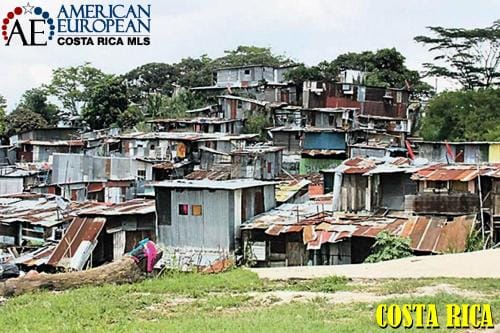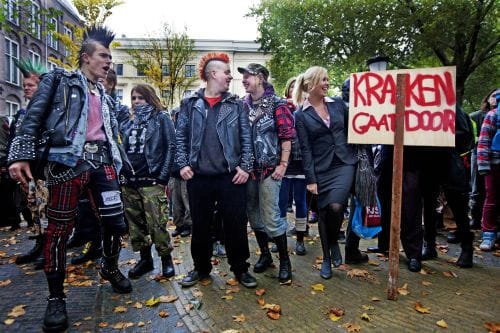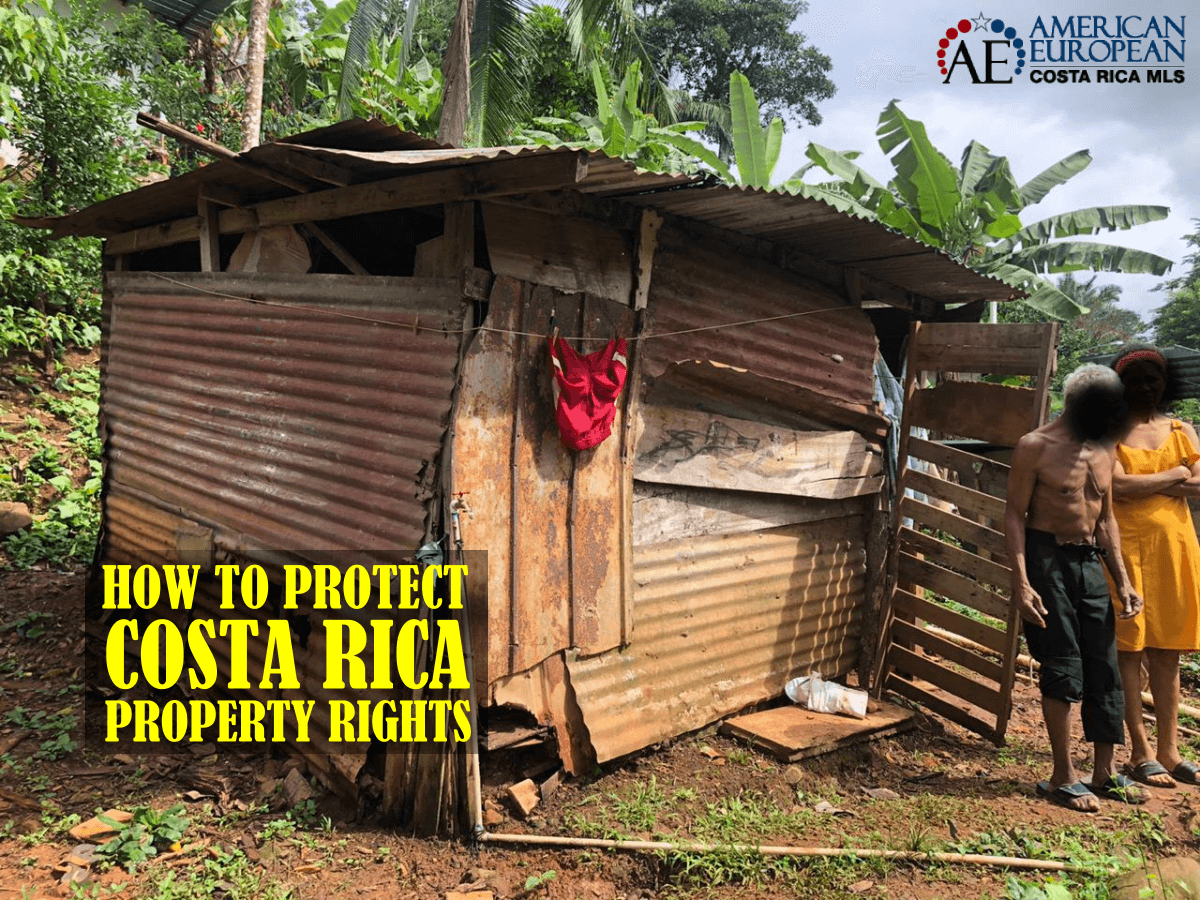Estimated Reading Time: 5 minutes
Now and then, you will read that an expat or a local property owner lost their Costa Rica property rights to squatters or thieves. Unfortunately, the Costa Rican judicial system is a bit slow in resolving property rights issues. The system has loopholes allowing the bad guys to get away with squatting or stealing property.
NO ONE should be allowed to squat on land that is someone else’s, and NO ONE should be allowed to take out a mortgage on a property owned by somebody else. Unfortunately, it happens, although often it’s the landowner’s own fault.
Let me explain how this happens and recommend how you can protect your Costa Rica property rights against squatters.

Who invented squatting
The Costa Ricans did not invent squatting; Robert Neuwirth suggests 1 billion squatters globally. It is not even a 3rd world country problem only. My own home country, The Netherlands, had its issues in the 70s with the “crackers” taking over abandoned buildings in Amsterdam, and squatting finally became illegal in 2010. The United States has had problems with abandoned buildings and squatters, which most people are unaware of. I’m giving you the above links so you can see that squatting isn’t only happening in Costa Rica.
The time requirement before ownership through adverse possession kicks in varies from state to state. In California, it’s five years; in Texas, it takes 30 years. In West Virginia, open dominion must be held over the property for ten years. But ultimately, adverse possession can result in a squatter owning the house.
Once in a while, I get emails from people who get angry with the legal system in Costa Rica and the entire world because they lost their property to a thief or a squatter.
In some cases, they are right to be angry, and I agree something should be done about it. That’s why I will always defend Costa Rica’s property rights. Property owners sometimes don’t accept it was their fault for not properly caring for their property. Each owner should do everything in his/her power to protect the Costa Rica property rights and not abandon the property.

Squatters
Believe it or not, the colorful people on the left are also squatters. Squatters in Costa Rica look different, though.
This usually happens: The property you bought is probably not fenced or used for anything. It probably doesn’t even have a fence. It’s in the middle of nowhere, and the neighbors are local farmers. The land is never cleaned, and you don’t pay your property taxes regularly since you don’t live here.
A local neighbor sees that nobody is using the land and decides to build a shack on it, build a fence around it, and put some cows in the pasture.
Sometimes, I learn that the owner has stopped paying the property’s caretaker his monthly salary, who then files for possession.
Article 277 of the Costa Rican civil code establishes possession rights for property through occupation.
These possession rights can be acquired when the owner allows a third party to use and maintain possession of the property for more than a year (Par. 2, Art. 279 Civil Code).
How to protect property against squatters
1. Always pay your property taxes on time, and keep the proof. (often, this is where the problem starts, as municipal employees can see you haven’t paid for several years)
2. Maintain your property clean.
3. Have your property fenced.
4. Have someone check on your land regularly.
5. If you have a caretaker, make a formal labor agreement through your lawyer and always pay him/her on time.
6. If the above doesn’t work, present within three months of the date squatters invaded your land, either a civil procedure known as interdict or a criminal action charging usurpación. A late response from the owner can lead to lengthy and costly procedures and, worst of all, to the possibility that the de facto tenants will control the property.
Property thieves
You own a property in Costa Rica, and you suddenly find out that the property is not in your name anymore. Property thieves and a crooked notary public have transferred the property into someone else’s name, taken a mortgage on the property, and disappeared. The mortgage holder has never received any mortgage payments and is foreclosing on your property. You find out when it is too late, and the property is not yours anymore.
The properties that are victims of this fraud are usually raw land, not a house where someone lives.
How to protect property against thieves
1. You can take a Property Alert service, where they will monitor your property title and alert you if anything has changed in your title given by the National Register. Word is out that they do not take any responsibility for any theft or even for not alerting you, so it is a waste of money. Do your own due diligence on this.
2. Check the title of your property online once a month. It takes only a few minutes.
3. Register a Cédula Hipotecaria on your property. This is much like a mortgage you own, to protect the property from being sold or mortgaged by anyone else. Ask your attorney about the Cédula Hipotecaria. If you don’t have an attorney, check the list of legal counsel we recommend.
Safe or not safe
All the above does not mean buying Costa Rica real estate is unsafe. Times change, and thieves become more imaginative, and so should we. Talk to your lawyer or a knowledgeable real estate agent about your doubts, just like installing a lock on your front door that you didn’t need 40 years ago.


















